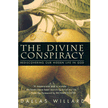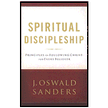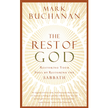Let us, therefore, make every effort to enter that rest, so that no one will fall by following their example of disobedience. For the word of God is living and active. Sharper than any double-edged sword, it penetrates even to dividing soul and spirit, joints and marrow; it judges the thoughts and attitudes of the heart. Nothing in all creation is hidden from God's sight. Everything is uncovered and laid bare before the eyes of him to whom we must give account. Heb 4:11-13 (New International Version)
As with many books of the Bible, Hebrews is one I have read many times, yet each time I read it I glean more knowledge and insight. This morning is no exception.
My daily reading led me to chapter 4. I have been reading from different translations over the past few days, and this morning I read from the NIV Study Bible. The wording and study notes helped me understand what it means to enter into the rest of God, and how our faith determines our ability to do so. As I often do, I pulled out another translation to compare.
This morning I reached for the ESV Study Bible and read the same verses and accompanying study notes. The ESV study notes are a bit more cumbersome to read and understand, but well worth the time and effort to work through. This morning, however, it was not so much the study notes that sparked the “ah-huh” moment for me as it was the grammatical structure of the text.
In the NIV (and several other translations), the paragraph on God’s rest ends with verse 11, and a new paragraph begins with verse 12. In the ESV (and the NASB), the paragraph ends with verse 10, and a new paragraph begins with verse 11. You may be asking, “So, what’s the big deal?” Well, the fact that the paragraph in the ESV begins with verse 11 ties that particular verse in with 12 & 13; and in so doing helped me to understand the context of verses 12 & 13 in relation to verse 11.
In other words, there is more to entering the rest of God than simply taking a day of rest; we must also be faithfully obedient. Moreover, we cannot fool God if we try to deceive ourselves by our actions. “The word of God is living and active…discerning the thoughts and intentions of the heart” Hebrews 4:12 (ESV). God knows if we are living our lives in faith or not; we cannot fool him. In order to enter the rest of God, we must strive to live our lives in faith and obedience to God. We must understand and accept what Jesus Christ did for us, and place our trust in Him. Only then are we truly able to enter into the rest of God.
Holy Bible. (2008). The ESV study Bible: English standard version. Wheaton, IL: Crossway Bibles.
Holy Bible. (2002). Zondervan NIV study Bible (Fully Revised). Grand Rapids, MI: Zondervan.













